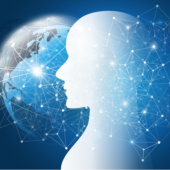The Neuroscience of Your New Year’s Resolution
- Do you want to be fitter or just slimmer?
- Do you want to be smarter or wiser?
- Do you want to be happier, less stressed, or more in control?
We all "want" all these and many other things in 2021. But before we go any further, it may be useful to clarify the difference between what you want and what you need in this new year, as well as your source of motivation. Think of how much you needed to eat over Christmas. The brain is a complex organ but it wants more than it needs. It has a genetic default that is prehistoric. But this neurological default is no longer relevant today.
Wanting vs. Needing
When you are (unconsciously) chasing your wants, it’s often (at least initially) based on your brain’s desire to collect extra energy resources. And so the brain is hard-wired for times when humans often experienced famine. But today, that neurological default needs a reboot. This is because your brain tricks you so that you get an emotional reward by eating to excess. This is driven by an area of the brain that controls desire. This system revolves around the function of the amygdala and the dopamine neurotransmitter that not only rewards craving but also gives an immediate feeling of wellbeing and happiness. But weirdly enough, this experience of happiness actually disappears pretty quickly. If we allow the brain to run rampant chasing our desires, it does not result in sustainable happiness.
Stanford Stress
Maybe you’ve heard of the study at Stanford University where students were put in two groups to test neurological stress? Group A was given only two numbers to remember, while Group B was given seven numbers. They all spent time doing random research tasks and questionnaires to practice their recall of the numbers. They completed the tests just before lunch. As the students were leaving, they were offered two different snacks: A) a slice of chocolate cake, or B) a bowl of salad.
The Luxury of Choice
The group B students (with seven digits to remember) were nearly twice as likely to choose the cake as compared to group A students who were given two digits. The researchers showed that those extra five numbers took up valuable neurological resources. This is called “cognitive load” which is neurologically taxing on available energy. The brain knows that a sugar hit from the cake is a quicker way to replenish the brain’s need for energy than a salad. This makes it much harder to resist a dessert if your brain is exhausted. It can take as little as five bits of numerical data to cause the brain to follow its unconscious desires. A tired brain will struggle to resist what it wants (quick sugar boost) over what it needs (sustained energy).
Shake 'n Bake
“Yes please, that second slice of freshly home-baked cake sounds great!” That’s clearly a desire. “But I need to lose weight if I’m going to run a 10K.” That’s a need! The difference between "wanting" and “needing” is confusing if you look at it like this. So, this year, if you want to be happy and achieve that resolution, please clean your mind and refocus away from wanting and onto needing. It takes a load of "weight" off your shoulders—and belly. You may realize you actually don’t need that much…
But New Year’s resolutions point to the fact that we simply "want" to feel happier and know we "need" to make some kind of change. The low hanging fruit is our weight. It's the most popular resolution people make on January 1st. We can measure our weight and get short-term benefits by eating less, but this will not necessarily make us happy.
Willpower Has No Power
The prefrontal cortex (located just behind the forehead) is the area largely responsible for our conscious willpower — compared to the unconscious emotional power of the amygdala. The amygdala is way more powerful! Of course, it’s important to have goals, but too many New Year’s resolutions, or intentions, overload the prefrontal cortex which causes allostatic loading (or chronic stress). This stress in turn makes our conscious willpower weaken and our emotional power peaks. This is a great recipe for failure.
Your Self-Driving CAR
Self-determination theory is the study of motivation. This explains that we have a genetic tendency to behave in effective and ineffective ways when it comes to being motivated. This research at Rochester University showed that if we more freely help others satisfy their psychological and emotional needs, we tend to feel happier ourselves. In SDT research: The need for driving your "CAR" is vital. The C in CAR is for Competence, the feeling of being successful. A is for Autonomy and are those behaviors in which you feel you have a choice. And lastly, R stands for Relatedness when you feel authentically connected to others.
You will drive your CAR to be happy and reach your New Year’s resolutions if you feel you have made valuable contributions to others. Your CAR is a people’s car. (Volkswagen is German for people’s car.) Self-determining how you give to others is the best way to feel happy, and in this way, your brain rewards you with a dose of dopamine, similar to eating cake. This is why you feel such joy when a child is so delighted with your Christmas gift.
Balance Caring for Yourself and Others
Setting ambitious goals for yourself is conducive to health and happiness, and as I suggested, it is best if your motivation is in alignment with living a meaningful life and enjoying fulfilling relationships. Goals are great! Finding ways to contribute to others while improving your life will help you stay motivated and happy in the process. Beware, however, of maintaining a balance between prioritizing your own health and the needs of others. Neglecting yourself is a recipe for the imbalance that can result in health and relationship problems.
Now for the Bad News
Most people don’t achieve their resolution. And as losing weight is the most common New Year’s goal, it is not easy to sustain a self-directed motivation. As suggested, rather make it about others. Instead of you focusing on your weight, make it be about having the fitness to play physical games with your kids, or the ability to go for a run with a friend. Social events improve motivation and mood. They reduce stress and losing weight is a nice by-product of social engagement.
Tiny Habits
The best resolutions are usually built by challenging yourself incrementally. This is what Dr. BJ Fogg calls "Tiny Habits." He explains it’s easier to make changes if the resolution gives you an immediate reward. Setting the bar too high will discourage you in the medium term. Your brain wants that immediate dopamine hit, remember. Rather than saying, “I’m going to run a marathon,” say “I’m going for a walk in the park while my kids cycle alongside me, having fun and improving their fitness too.”
The Tough Get Happy
Yes, we all know the past year has been the toughest year by a long shot! But you can make the new year gentler. Find a resolution that’s not punitive or one where you make judgments about yourself. Rather, take interest in what you can do for others. That kind of resolution will automatically make you happier – a great resolution for 2021. The tough get happier — by being helpers. Finding more fun with others is the magic resolution, that's easier to maintain.





